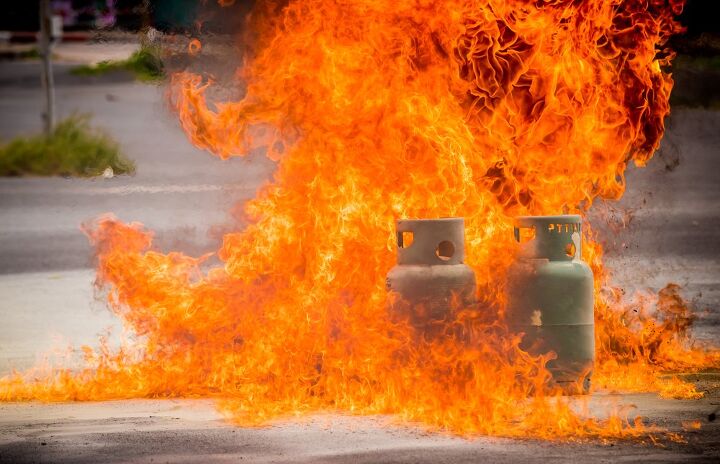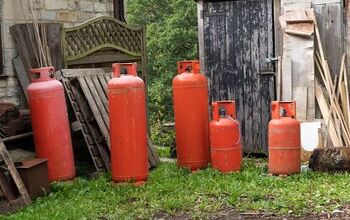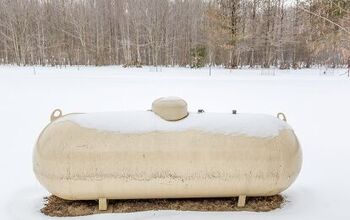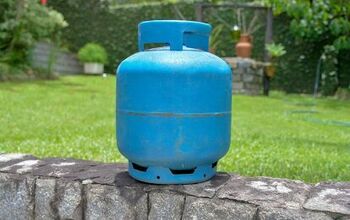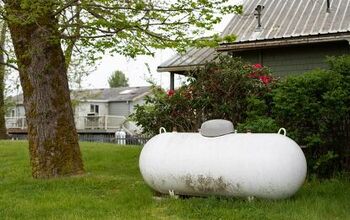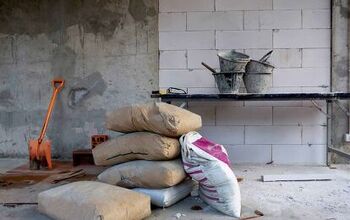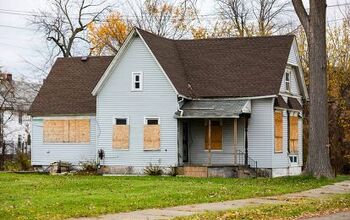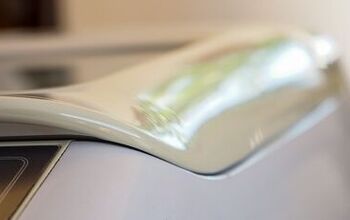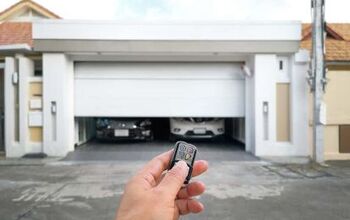Can Propane Tanks Explode In The Sun? (Find Out Now!)

Whether you’ve just bought your first propane tank or you’ve had one in storage for a while that you want to pull out, long-term exposure to the sun and heat is a very common concern. This brings us to the question at hand: “Can propane tanks explode in the sun?”
In short, propane explosions are possible but they are not common. Although temperatures can rise quickly on hot summer days, thus, increasing the pressure inside the tank, there are a number of safety measures in place that prevent propane tanks from exploding in the sun. Regardless, you should still safely store your propane tanks outdoors, out of direct sunlight, and in the shade to avoid any chance of explosion.
Continue reading to learn more about what conditions are safe for propane tanks, how much heat they can withstand, some safe storage tips, and more.
Do You Need Water or Fuel Tank Installation or Replacement?
Get free, zero-commitment quotes from pro contractors near you.

What is Propane?
Propane is a combustible material that is created from natural gas processing and oil refining over extended periods. The naturally occurring gas consists of three carbon atoms and eight hydrogen atoms. The combustibility of propane makes it a very versatile product. It can be used for a range of applications, including torches, barbecue grills, central heating, and engine fuels.
On the other hand, propane’s combustibility is what makes it dangerous and can potentially cause an explosion. Generally speaking, accidents that stem from propane explosions are divided into two categories. The first is the most common reason for gas grill tank explosions and has little to do with the actual. Instead, the explosion results from the propane leaking since the tank was left open. This causes the gas supply to become ignited due to exposure to high temperatures or flames.
Although incredibly rare, the other category for accidents related to propane explosions occurs when the pressure in the propane tank is higher than the pressure the tank can safely vent. This causes the tank to burst open, and is known as a Boiling Liquid Expanding Vapor Explosion (BLEVE).
Can Propane Tanks Explode in the Sun?
On a hot summer day, temperatures can climb quickly and as the propane tank heats up, the pressure inside increases. While it’s rare, it is still possible for propane tanks to explode in the sun. Though, propane tanks are equipped with a number of safety measures to prevent this from happening. For starters, the white or silver colors of these tanks is on purpose, as these colors reflect light and minimize absorption of heat.
Additionally, propane tanks are pressured-tested under a variety of distinct scenarios. Every type of propane tank, regardless of the size, is equipped with 20 percent expansion space. This means that if the gas heats to a critical level, the tank has sufficient space to stretch before the pressure of combustion becomes a concern.
Propane tanks also have a pressure relief valve, along with the main valve, as an added safety feature. These valves are specially designed to release pressure build-up to avoid combustion. That said, propane tanks are essentially constructed with expansion and release in mind due to increased heat over time. The only real threat is a sudden increase of heat, like in the case of a large fire or if the tank ruptures and a spark ignited the gas.
What About Gas Leaks?
If you’re worried that your propane tank might have a leak or poor seal that could potentially lead to an explosion, there is a simple way to find out. Before you hook it up to your grill and turn it out, remove the tank and set is somewhere away from any open flame.
Combine some water and soap into a spray bottle and spray it along the outer rim of the tank. Then, open the gas valve. If you notice bubbling then you should replace the seal before you use the propane tank.
If you’re still hesitant and suspect that there may be a problem with the seal on your propane tank, consider taking it to a professional to have it looked at. When it comes to flammable gas that has the potential to explode, it’s always better to be safe than sorry.
How Much Heat Can Propane Tanks Handle?
Propane should not be placed in any environment that would reach over 120 degrees Fahrenheit, or 40 degrees Celsius. Though, this is precautionary since they can actually take more heat than that due to the 20 percent expansion. These tanks are designed to withstand up to 275 psi, which translates to an internal temperature of about 150 degrees Fahrenheit.
When your propane tank’s internal temperature gets this high, it can be dangerous. Though, even if your tank did heat up that high, the pressure release valve would kick in and release the built-up gas before it even gets close to 150 degrees.
How Cold Can Propane Tanks Get?
While some gases can have problems in cold temperatures, propane tanks are typically safe in the winter months even if they are left uncovered. This has to do with the fact that propane naturally does not react to cold temperatures. Even if the tank exceeds the lower limits of propane, which is roughly -40 degrees Fahrenheit, it will still be completely safe on your property.
Do You Need Water or Fuel Tank Installation or Replacement?
Get free, zero-commitment quotes from pro contractors near you.

Safety Tips to Prevent Propane Tank Explosions
Consider the following safety tips to prevent propane explosions:
- The best way to prevent a Boiling Liquid Expanding Vapor Explosion (BLEVE) is to always make sure that the propane tank is closed tightly while in use. You should also frequently check hoses and connections for leaks.
- Never store tanks near open flames or near another tank that is in use.
- Follow OSHA guidelines, which require a chemical be mixed with propane so that users will detect a “rotten egg” odor of there’s a leak.
- Store your propane tanks out of direct sunlight and in the shade.
Although it’s rare for propane tanks to explode, it can still happen and should not be taken lightly. A propane tank explosion can result in serious injury or even death to those who are in the proximity of it.

Jessica considers herself a home improvement and design enthusiast. She grew up surrounded by constant home improvement projects and owes most of what she knows to helping her dad renovate her childhood home. Being a Los Angeles resident, Jessica spends a lot of her time looking for her next DIY project and sharing her love for home design.
More by Jessica Stone



